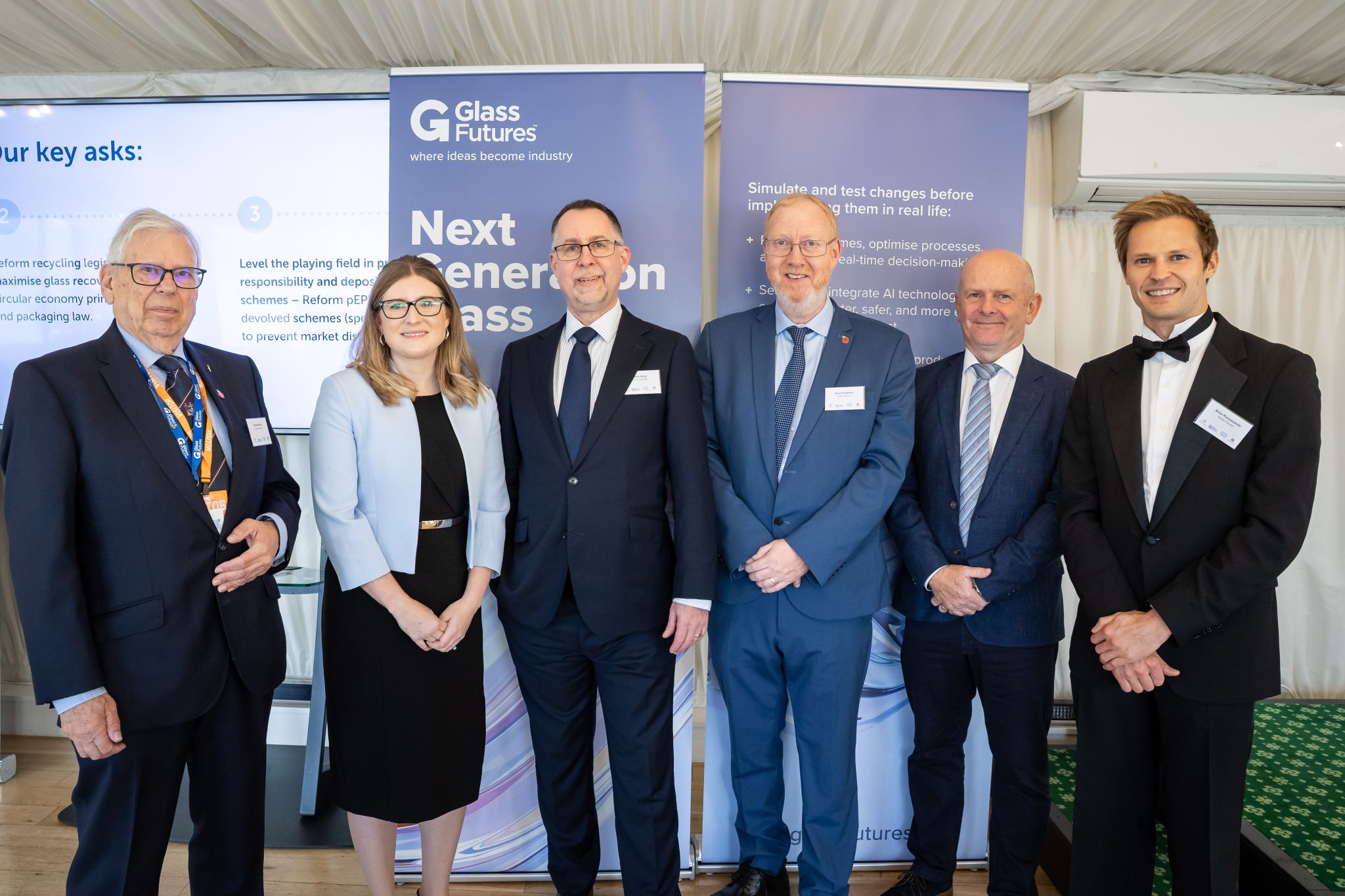Latest News
UK glass industry urges policy reforms to secure low-carbon future

The UK glass industry has called for urgent policy support to secure its future role in the country’s low-carbon economy, at a high-profile event in Parliament. The reception, hosted by the UK Glass & Glazing Collective on the Westminster Terrace, brought together MPs, industry leaders and senior policymakers to emphasise the strategic importance of glass manufacturing in Britain’s industrial and environmental ambitions.
The sector set out a series of key policy priorities aimed at boosting its competitiveness and accelerating decarbonisation. These included reforms to packaging recycling schemes such as the planned extended producer responsibility (pEPR) and deposit return schemes (DRS), incentives for low-carbon construction, and greater political and regulatory stability to foster long-term investment.
Backed by a coalition of industry bodies including British Glass, Glass Futures, the Glass & Glazing Federation, and the Worshipful Company of Glass Sellers, the Collective used the event to underline the potential of glass to support high-tech and green industries, from renewable energy and medicine to defence and quantum computing.
David Baines MP, who sponsored the event, was joined by speakers including Industry Minister Chris McDonald, Sarah Champion MP, and representatives from across the sector, such as Mike Butterick of the Flat Glass Manufacturers Association, Dean Butler of Ardagh, Steven Heath of Knauf Insulation, and Justin Kelly of Glass Futures.
Dave Dalton, Chief Executive of British Glass, described the event as a vital step towards re-establishing the UK glass sector’s role in supporting manufacturing jobs and economic growth. “As a sector we’re asking for a fairer and better considered policy environment through which we can stabilise recent declines and re-establish our role in bolstering revenues, maintaining UK manufacturing jobs and leading the technology agenda,” he said.
Justin Kelly, CEO of Glass Futures, called the reception a “landmark moment”, marking the first time the industry had presented a united voice to government. “That unity reflects the kind of collaboration essential to delivering industrial decarbonisation at pace,” he said. “Glass is not just a material of the past – it’s a platform for the future.”
He warned that, without urgent action to address energy costs and improve recycling infrastructure, the UK risked losing ground in a sector critical to global sustainability goals. “With the right support, the UK can lead the world in sustainable materials innovation – delivering jobs, resilience, and global leadership in the technologies that will define tomorrow’s world,” he added.
The UK Glass & Glazing Collective, which includes the Worshipful Company of Glass Sellers, was formed to strengthen the industry’s influence in policy debates. It says it will continue to engage with government to ensure the sector’s priorities are reflected in future industrial and environmental strategies.
The event comes amid growing recognition of the need to support domestic manufacturing as part of the UK’s net zero transition and efforts to enhance economic resilience. Industry leaders argue that enabling a more circular economy through reforms and strategic investment could position the UK as a global leader in sustainable glass innovation, while securing long-term growth and competitiveness.





